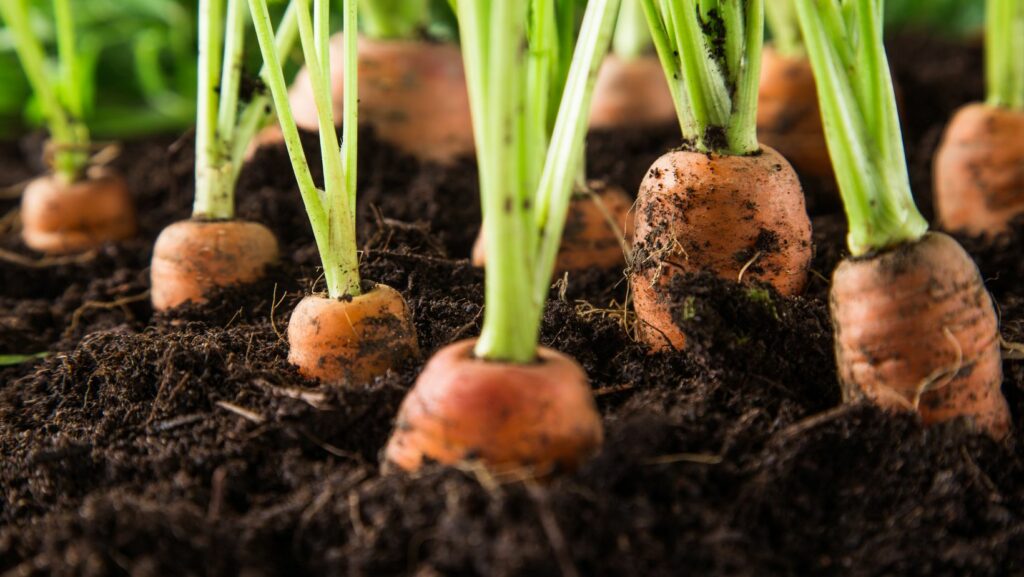A thriving vegetable garden is a sight to behold, but it’s also a beacon for pests. These unwelcome guests can turn a lush green oasis into a wilted wasteland in no time. However, there’s no need to despair. With the right knowledge and tools, it’s possible to keep your garden flourishing and pest-free.
This article dives into the world of vegetable gardening pest control. It’s a comprehensive guide for gardeners seeking to protect their hard-earned harvest. From identifying common pests to implementing effective control strategies, you’ll discover how to maintain a healthy, productive garden. So, whether you’re a seasoned green thumb or a budding gardener, this article is your ally in the battle against bugs.
Vegetable Gardening Pest Control
 Gaining a strong knowledge of pest control is paramount in the success of vegetable gardening. Vegetable-loving pests pose significant threats to your produce and can devastate an entire crop if untreated. This section delves into the necessity of pest control and explores common garden pests you may encounter.
Gaining a strong knowledge of pest control is paramount in the success of vegetable gardening. Vegetable-loving pests pose significant threats to your produce and can devastate an entire crop if untreated. This section delves into the necessity of pest control and explores common garden pests you may encounter.
Implementing effective pest control is indispensable in vegetable gardening. With an uncontrolled pest invasion, plants’ health deteriorates and the quality and quantity of their produce can diminish. Pest control wards off unwanted insects, ensuring the well-being of the plants. It also allows gardeners to secure a healthy garden, improve crop yield, and maintain the ecosystem balance. For example, aphids, minute insects that feed on plant sap, can induce yellow leaves and stunted growth if unchecked. Therefore, pest control offers protection from such detrimental effects.
Types of Common Garden Pests
Several pests typically infest vegetable gardens, each with specific behaviors and damage patterns. Below is a compilation of common garden pests and their characteristics:
- Aphids: Known for their small size and vast populations, aphids suck sap from plant leaves, leading to discoloration, curling, and poor plant growth.
- Cutworms: Cutworms, nocturnal caterpillars, damage plants by cutting through the stems at ground level.
By identifying the types of pests in your garden, one can tailor effective strategies to avoid damage and ensure a thriving vegetable plot.
Natural Pest Control Methods
 Beneficial insects and insecticidal soaps represent natural, eco-friendly pest control methods. These strategies can manage common garden pests without damaging plant health.
Beneficial insects and insecticidal soaps represent natural, eco-friendly pest control methods. These strategies can manage common garden pests without damaging plant health.
Insecticidal soaps effectively control many soft-bodied pests, such as aphids and mites. These soaps penetrate the outer layers of these pests, causing dehydration and eventual death. A gardener applies these soaps directly to the pests, preferably in the early morning or late evening to avoid leaf burn.
Beneficial Insects and Their Roles
Certain insects can play crucial roles in controlling garden pests. These insects, known as beneficial insects, help maintain a balanced ecosystem within the garden. They fend off harmful pests either by preying on them or acting as pollinators. Examples include lay bugs, green lacewings, and predatory mites which actively prey on pests such as aphids and mites. Attracting beneficial insects can be as simple as planting specific types of flowers, shrubs, or herbs known to attract them.oth insecticidal soaps and beneficial insects represent safe, effective, and natural pest control methods. By implementing these strategies, gardeners can protect their vegetable gardens from common pests.
Chemical Pest Control Solutions
 Transitioning from natural methods, attention now shifts to chemical solutions for vegetable gardening pest control. Detailed herein are critical considerations on the use and careful selection of chemical pesticides.
Transitioning from natural methods, attention now shifts to chemical solutions for vegetable gardening pest control. Detailed herein are critical considerations on the use and careful selection of chemical pesticides.
Chemical pesticides become a viable option, if and only if, natural pest control methods prove ineffective. Typically, a surge of pests such as aphids or Colorado potato beetles, that overwhelms the population of beneficial insects like ladybugs and green lacewings, necessitates chemical intervention. Also, if the vegetable garden holds large-scale commercial importance and requires reliable pest control, chemical pesticides could provide an effective and swift solution.
For home gardeners, it’s important to observe, monitor and assess whether the pest population is beyond the control of natural methods. Only then, the switch to chemical pesticides becomes a necessary move. Remember, unnecessary use of chemical pesticides may lead to pest resistance and environmental harm.

